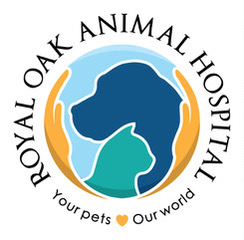Library
-
Abdominal swelling in any reptile is always a concern that needs to be brought to the attention of a veterinarian well versed in reptile medicine. In female reptiles, this swelling often means that the individual has eggs or fetus that are ready to be delivered. When the female cannot deliver the eggs or babies, this is referred to as dystocia. This condition can be life threatening and need attention ASAP.
-
Swellings on or around the joints in reptiles can be an indication of uric acid deposits in the area. This condition is referred to as gout. Gout is often painful and may also affect internal organs. Treatment will require medications and sometimes surgery.
-
Do you have medications stored in the bathroom cabinet, kitchen drawer, and pantry shelf? Are random bottles haphazardly tossed into the “pharmacy”? Medications are meant to help us and our pets, but they can do more harm than good if stored or administered incorrectly. You can protect your family and pets by safely handling and disposing of medications.
-
It is key for the health and safety of all snakes that proper housing be planned for the eventual adult size of your pet snake. For their enjoyment, hide boxes and branches are beneficial additions to the caging environment. Proper bedding, lighting and heat sources will differ depending on the species and size of your snake.
-
Complete and accurate medical records are like a medical diary for your pet. The ability to review your pet’s medical history before the first appointment will allow your new veterinarian to provide exceptional care that is tailored and timely. You can request that your previous veterinary clinic send your pet's records to your new veterinarian.
-
**This article has been specifically written for pet sitters and how they can reduce their exposure to COVID-19.** COVID-19 is a new respiratory disease in humans, initially discovered late in 2019. Although all coronaviruses are related, they are not all the same virus. As a pet sitter, it is important to limit direct contact with your clients. People can shed the virus without showing any symptoms of disease, so it is important to practice social distancing even with clients who appear healthy. It is also important to limit your contact with potentially contaminated items in your clients’ homes, whether they are at home or not. The most important things you can do to minimize your risk of infection, and minimize the risk of transferring infection to your clients, is to be cautious when interacting with clients and when touching anything that could be contaminated. Communicate with your clients regularly during this pandemic. Having information about your clients’ health can help you avoid taking unnecessary risks. Finally, if you develop any signs of COVID-19, including cough, fever, and/or shortness of breath, it is important that you stay home from work.
-
Yearly health examination for all reptiles is highly recommended. Since reptiles are excellent at hiding symptoms illness, it takes an experienced reptile veterinarian to assess the true health of your pet reptile. Blood tests, fecal examinations and/or radiographs may be performed during the health visit.


